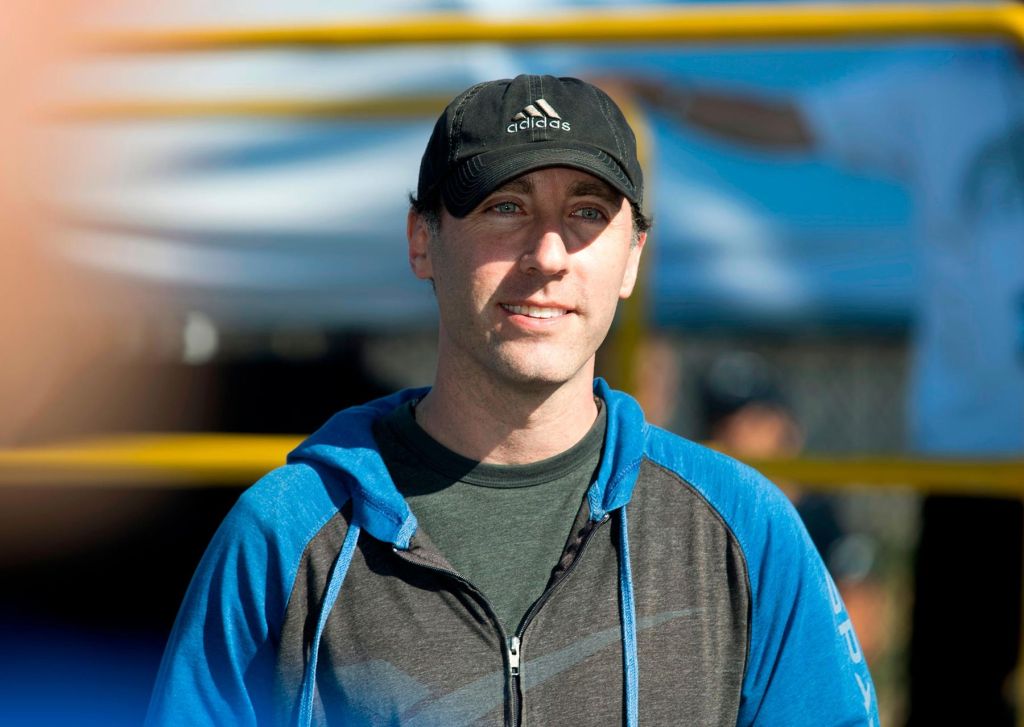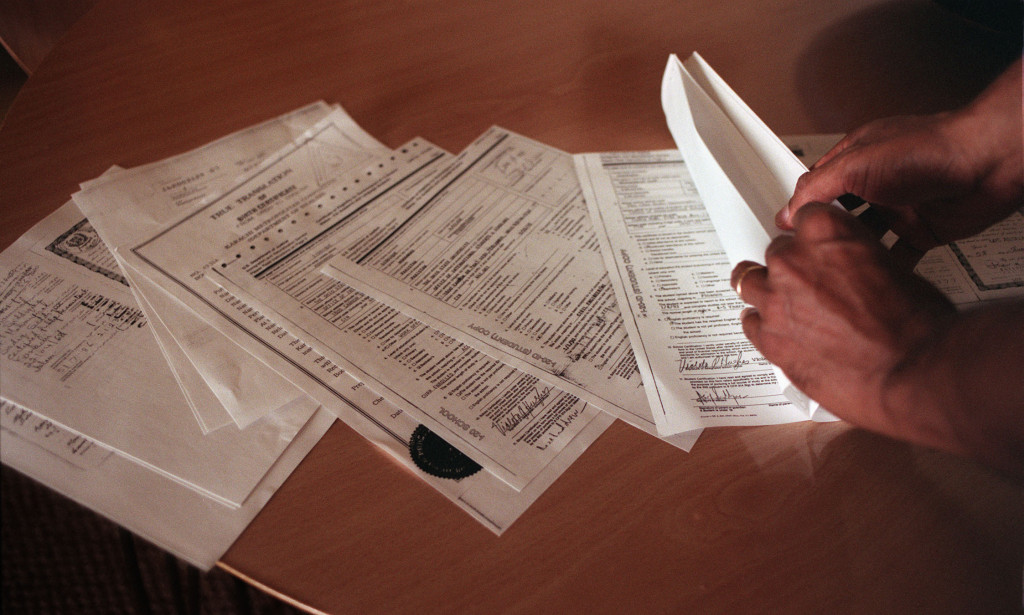By Sarah McBride | Bloomberg
Before he became the director of one of the world’s most closely watched transportation companies, Steve Davis owned a bar. And not just any bar. Thomas Foolery was dubbed by the Washington City Paper “the wackiest bar in Washington.” It sold Ring Pops, kept a Bedazzler on the premises and gave 10% off to anyone who dressed up as Carlton from the TV show Fresh Prince of Bel-Air.
So it’s perhaps fitting that Davis is now the president of Boring Co., Elon Musk’s wackiest transportation startup. Boring Co., despite its audacious goal of remaking urban transit, also created a media sensation last year by selling flamethrowers and building an actual watchtower as part of an elaborate Monty Python joke.
Now, Davis and Boring Co. have more serious plans. On Friday, he’ll be on site to mark the official start of tunnel-drilling underneath the Las Vegas Convention Center. It’s the first big test of whether the whimsical Boring Co. can actually complete a large-scale commercial undertaking.
Boring Co.’s $48.7 million subterranean transit system in Las Vegas is its only major project so far, outside of a nearly mile-long test tunnel in Hawthorne, California. Pit construction and other preliminary work on the project began two months ago. If all goes according to plan, in January 2021, Las Vegas convention goers will be able to board Teslas running along a throughway buried underground, and be hurtled halfway along the sprawling complex in just 1 minute.
So far, despite Boring Co.’s high profile, Davis has largely stayed out of the spotlight. Through a spokesman, he declined multiple interview requests for this article. But he’s a key force within the company. “He has the ability to inspire people,” said Mike Wongkaew, who was a Boring Co. engineer until late last year. “He also rolls up his sleeves and helps out.” Last year, as the company raced to finish its Hawthorne test tunnel, Wongkaew said Davis was among those helping carry supplies like plywood frames deep into the tunnel.
Colleagues describe him as a sharp engineer who provides both broad leadership and tackles detailed engineering questions. “He’s a technical guy,” said Juan Reyes, former acting administrator of the Federal Railroad Administration, now a partner at law firm Seyfarth Shaw. “They really count on him to resolve issues.”
And at Boring Co. today, there is no shortage of issues. While the company has made progress in Las Vegas, two more of its major projects have been stymied. In Washington, a proposed link from the city to Baltimore is mired in regulatory review. And in Chicago, where former Mayor Rahm Emmanuel promised speedy action on a proposed downtown-to-O’Hare shuttle, the mayor’s unexpected retirement threw the plans into limbo. His successor, Mayor Lori Lightfoot, told the Chicago Sun Times in June that Musk’s promise to build the tunnel without city money was “a total fantasy” and that the project didn’t rise “to the top of our list” of priorities.
Other critics have questioned both the safety of Boring Co. tunnels and the company’s lack of experience building large-scale infrastructure. But it’s a newcomer’s fresh thinking, the company contends, that’s allowed it to develop technology to construct tunnels faster and cheaper than the competition. Boring Co.’s champions believe that combination will make a new transportation future possible. Now, in Las Vegas, with two parallel 0.8-mile tunnels under the convention center, Davis is going to get the chance to prove it.
Davis started working with Elon Musk in 2003 as one of the first hires at Musk’s Space Exploration Technologies Corp. With his twin master’s degrees in particle physics and aerospace engineering, Davis developed a reputation at SpaceX for relentlessness. “He’s been working 16 hours a day every day for years,” one SpaceX engineer told Bloomberg journalist Ashlee Vance in his book, Elon Musk. “He gets more done than 11 people working together.”
He’s also performed feats of engineering. At one point, Musk assigned Davis the near-impossible task of making a part that cost $120,000 with a budget of $5,000. Davis toiled for months and eventually came up with a way to craft the part for $3,900, Vance writes. When Davis sent Musk a lengthy message with the good news, outlining the process and savings, Musk sent a one-word email back: “Ok.” Davis now jokes about the incident, but it reveals a hard-headedness from Musk, a famously tough boss, as well as Davis’s ability to handle it. Davis is one of Musk’s longer-serving executives.
At SpaceX, Davis spent a few years working in different locations, including Omelek Island in the Marshall Islands, where the company once had launch facilities, as well as its Southern California headquarters. Then, a little over a decade ago, he moved to Washington to open the company’s D.C. office.
There, missing the type of frozen yogurt he’d grown accustomed to in California, he decided to learn to make it himself via trial and error, according to an interview with a local radio station. As a side project, he opened his own yogurt store, Mr. Yogato, in the city’s Dupont Circle neighborhood, three months before the first successful launch of SpaceX’s Falcon 1 vehicle in 2008. Mr. Yogato customers who answered trivia questions correctly got 10% off, as did anyone who could stump Davis on a Seinfeld question, according to the “Rules of Yogato” posted on the shop’s website. Those who came dressed as tennis star Bjorn Borg got 25% off.
This burst of entrepreneurship unfolded as Davis, still at SpaceX, got to work on yet another degree: a Ph.D. program in economics at George Mason University, where he wrote his 2010 dissertation on U.S. currency debasement. In the preface he noted he one day hoped to open a restaurant called “Little Yohai,” perhaps finding inspiration in Morrie Robert Yohai, inventor of the Cheez Doodle.
Instead, he settled for opening a bar, Thomas Foolery, which became one of the first restaurants in Washington to accept Bitcoin. The bar was stuffed with “gimmick upon gimmick,” wrote the Washington Post, including “angry hour” discounts for patrons who shouted their drink orders. It also served comfort food like grilled cheese sandwiches, cookies with ice cream and spiked versions of milkshakes. “Basically, it takes you back to being a kid, but with alcohol,” one reviewer wrote on Yelp.
Today, Davis is no longer a restaurateur. Thomas Foolery closed in 2015, and he sold Mr. Yogato last year for $1, after holding a contest to select the new owner. Now, Davis seems to have found a creative outlet on a much larger scale.
In 2016, Musk started Boring Co., which he tapped Davis to lead. Onstage at a presentation in Los Angeles last year, Musk and Davis joked about their plans for the company’s waste product of tunneling sludge. Davis deferred to Musk, laughing at his jokes without seeming obsequious, and a couple of times gently nudged him from one topic to the next. Their easy rapport may help explain Davis’s longer-than-usual tenure as a top Musk lieutenant.
At the event, Musk said he was contemplating selling Boring Co. bricks made from dug-up dirt for life-size Lego kits, or perhaps using them to create an Egyptian-style monument. Davis responded by telling Musk the company would build him a pyramid. (So far Boring Co. has only built the Monty Python watchtower.) While the two men talked, between them, a snail crawled around in a pineapple-shaped terrarium, meant to symbolize the slow pace of competitors’ tunneling equipment.
Some in the industry are not amused. In Las Vegas, the city’s own mayor, Carolyn Goodman, took a stand against the Boring Co. project there, citing the company’s track record of completing zero commercial projects so far. But this spring, Davis spoke at a Las Vegas Convention and Visitors Authority meeting about the company’s vision for the transit system. The group outvoted Goodman and approved the tunnels.
Wooing skeptical public officials has become an integral part of Davis’s job, as he fights for the requisite approvals and contracts in places like Chicago and Baltimore. It’s a task he was familiar with from his time at SpaceX in Washington, negotiating with agencies like the Federal Aviation Association. “He was always trying to adjust things so the government would ultimately approve it,” said former railroad administrator Reyes, who got to know Davis through Boring Co.’s efforts to navigate the intricate federal review process required for the Washington-area tunnel.
Yet in one way, Davis’s role as a government liaison is an odd fit. He has served as a member of the board of advisers of the Atlas Society, according to its website. The group is dedicated to exploring the philosophy of Ayn Rand, known for equating government bureaucrats with “looters and moochers.” According to one 2012 report on a lecture he gave at the Atlas Society, Davis can quote from Rand’s influential novel, Atlas Shrugged. He also appears in the background of a 2012 movie based on the book.
Whatever his literary preferences, regulators will look more kindly on Boring Co. if Davis can pull off the Las Vegas project without a hitch. Plenty of other cities could use a low-cost transit option. And the Boring Co. is likely to bid on other projects as they come up around the country.
One contender: San Jose, California, which has sent engineers to meet with the Boring Co. and earlier this year put out a request for information on two projects. One would connect Diridon Station downtown to the airport, and the other would run along the Stevens Creek corridor, a busy thoroughfare that connects downtown to Cupertino, about a dozen miles west. It was the Boring Co., said San Jose Mayor Sam Liccardo, that inspired the city to believe it could attract relatively low-cost, high-tech proposals.
If Boring Co. lives up to its promises in congested urban areas around the country, its technology could one day outdo the fervently held techie dream of building cars that fly, Davis has said. “Flying cars … they don’t really exist,” he said during the Los Angeles presentation with Musk. “Tunnels do exist. And are very buildable.”
©2019 Bloomberg L.P.










